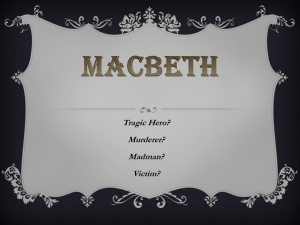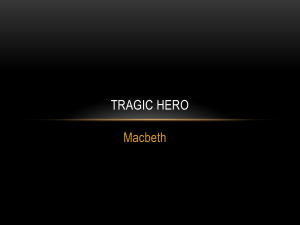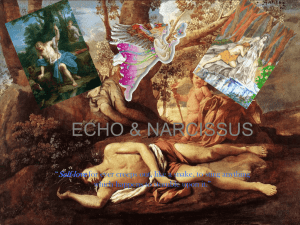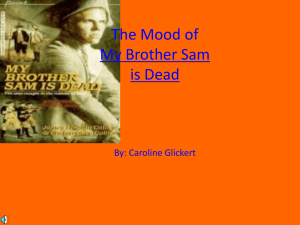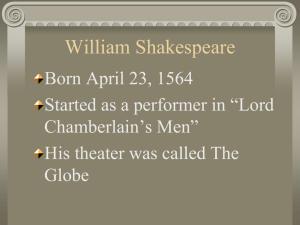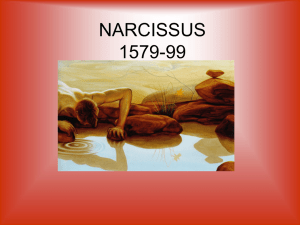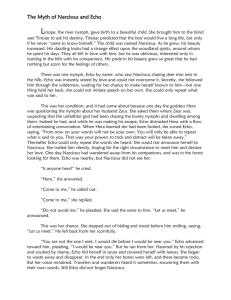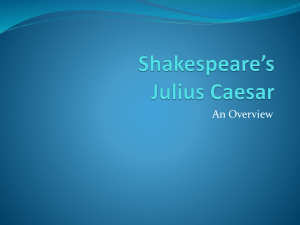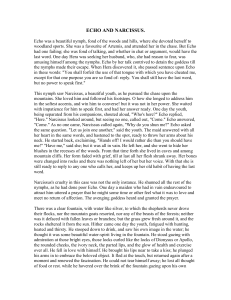A Face in the Pool Powerpoint - Kierstead`s St. Andrew`s Web Page
advertisement
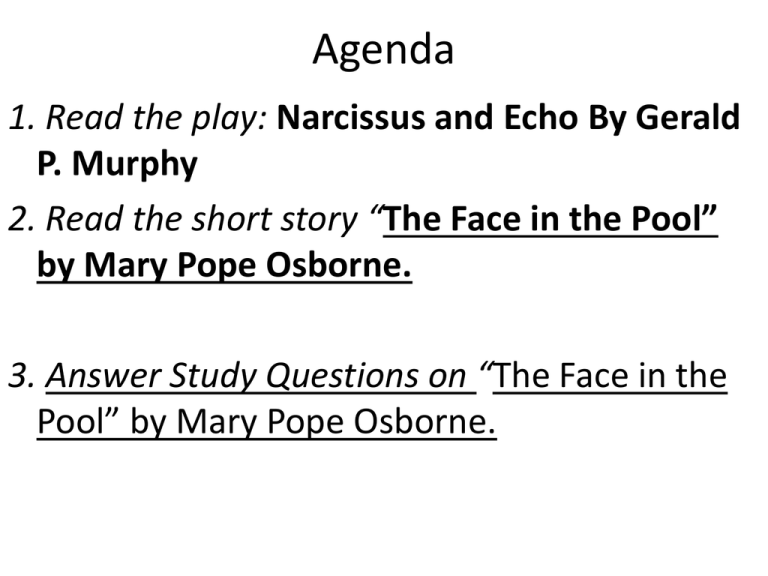
Agenda 1. Read the play: Narcissus and Echo By Gerald P. Murphy 2. Read the short story “The Face in the Pool” by Mary Pope Osborne. 3. Answer Study Questions on “The Face in the Pool” by Mary Pope Osborne. • Vocabulary: • Jovial: cheerful in mood. • Nymph: in mythology, a minor goddess or spirit of nature inhabiting areas of natural beauty such as woods, mountains, and rivers and traditionally regarded as a beautiful young woman. • Narcissistic: excessive self-admiration. “The Face in the Pool” by Mary Pope Osborne 1. During reading make note of each character. NarcissusJuniperJunoEcho- 2. What point of view is the story written in? • Omniscient point of view: the narrator knows everything about the characters and events in the story. 3. What might Echo say if she could speak normally? What feelings would she express? • How much she loved Narcissus 4. Why does Juno become angry with Echo? • She discovered Echo had been tricking her 5. Why does Echo fall in love with Narcissus? • Because he is the most beautiful young man in the forest and all who look upon him immediately fall in love with him. 6. Why can’t Echo communicate with Narcissus? • Because she has been cursed by Juno and can only repeat the last words anyone says. 7. Why does Narcissus die? • By being unable to leave his reflection, he died most likely from starvation/exposure to the elements. Characteristics of a tragic hero: The tragic hero is a character who falls from a great height. The tragic hero has a tragic flaw which leads to his downfall. (The character is neither good nor bad.) • Before the end of the story, the character recognizes his tragic flaw and accepts that he brought his fate upon himself. (In other words, the tragic hero takes responsibility for his actions and for the outcome of those actions.) 8. In the short story “The Face in the Pool”, Narcissus is the tragic hero, what is his tragic flaw? • It is his extreme vanity
